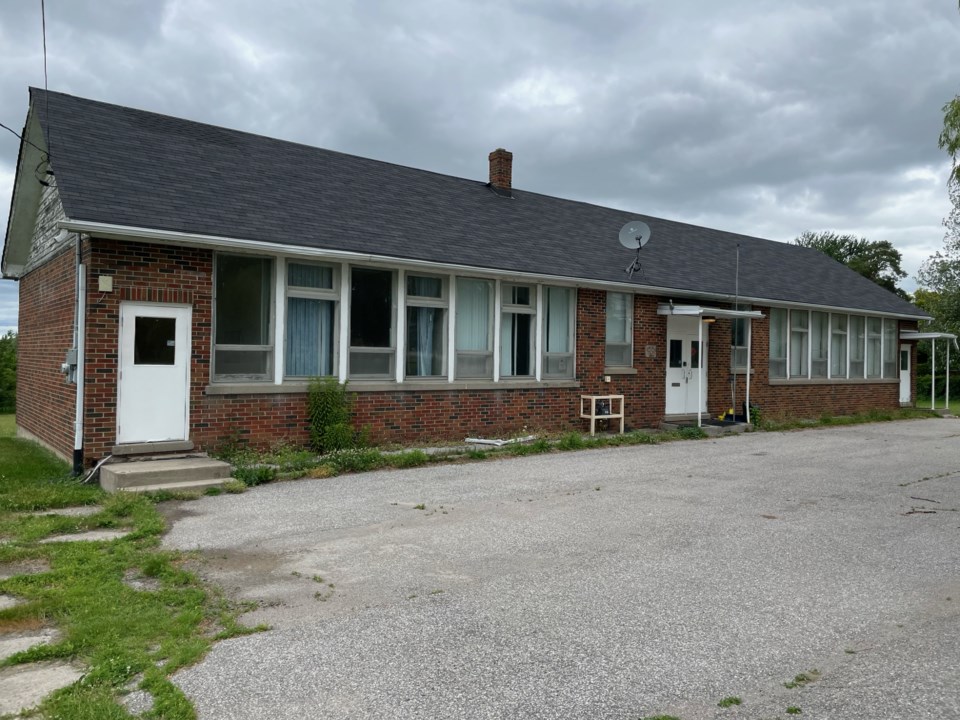Like so many others in Bradford West Gwillimbury, the town took advantage of the hot real estate market in the first half of the year.
The sale of 4208 County Road 88 was announced during the June 21 council meeting. The property had been purchased in 2014 for $550,000, as the town had designs on building the new fire hall on that site.
Instead, the former two-room school house was sold to an undisclosed buyer for approximately $1.8 million.
The initial purchase was funded 90 per cent from development charges and 10 per cent from the town’s capital expenditure reserve. The proceeds from the sale have to be returned to those accounts, using the same percentages.
Council approved returning $559,443 to the development charge reserve and the remainder to the capital expenditure reserve.
Between the decision to begin to “strategically divest” some of its inventory and additional funding from the Ontario Community Infrastructure Fund, the town has approximately $2.3 million in additional revenue that it’ll be investing into reserves.
“I think it allows council to do some strategic planning in the future,” said Deputy Mayor James Leduc. “We can use that to solve some of the problems we have in our community.”
“Keeping taxes low, prudent budgeting and working with the other levels of government; it turns out it works,” added Coun. Jonathan Scott.
Because the final site of the fire hall hasn’t been decided on, Mayor Rob Keffer lauded taking the opportunity to increase the value of the town’s investment from eight years ago. He also said the new fire should still at least be in “the vicinity of Bond Head.”
Town-owned real estate wasn’t the source of the only windfall council heard about at the June 21 meeting.
Councillors also voted to make an amendment to the community benefits contribution portion of the applications surrounding 123 Holland St. W. and 126 John St. W.
When council approved the zoning for the Holland Haus development, it allowed the condominium to exceed the six-storey limit set out by the town’s bylaws. In exchange, the developer agreed to install speed bumps along John Street West, allow public access to the internal courtyard/parkette of the development and offer 12 one-bedroom units as affordable rentals over a 15-year period.
In late April, the developer came back with a change: instead of having the 12 units for affordable housing, Isroc Building International Inc. would pay the town $1.5 million to be used for affordable housing initiatives.
Once the math checked out, the town jumped at the offer.
The town partnered with Simcoe County Housing, looking at the estimated average market rental rates for those units and comparing that to the published figure for affordable levels for a one-bedroom apartment. The town then took the difference and multiplied by 12.
“Our calculation determined that the quantum of that was actually less than $1.5 million,” explained town CAO Geoff McKnight. “Therefore, we felt that the offer was not just fair, but… quite reasonable.”
By accepting the developer’s offer, the town has 12 fewer affordable housing units than planned, but instead has a seven-figure sum to place in an affordable housing reserve that could be utilized in partnership with the county or other affordable housing partners to “further stimulate the production of that housing,” McKnight added.
The $1.5 million will be paid in two instalments and is also over and above the development charges that will be levied on the construction of the condominiums, Keffer added. Development charges, in this case, will be in the range of $15,000 per unit, whereas for affordable housing, the county levies $1,000 per unit.
“This is an excitable new way we can fund affordable housing, moving forward,” the mayor said. “We’ve done our research to see, and it comes out favourably, the amount we’re being offered.”
Some additional money was also found through a repair coming in under budget, but it was quickly put to use elsewhere.
The reconstruction of the parking lot at 26 Holland St. E. could come in at least $150,000 under budget. This is the final municipal parking lot in the downtown core that requires refurbishment.
Council was presented with three options for the work on the parking lot, including work that would see as many as 34 parking spots on-site (at a cost of approximately $375,000) or with fewer spaces and a ramp connecting the parking lot the adjoining property, which houses La Mexicanada.
The third option will see 27-29 vehicle spaces with eight accessible spaces and no ramp. It’s estimated to cost anywhere from $70,000 to $100,000.
Scott moved the third option, which council endorsed, with an amendment to put the extra money into fixing the lower parking lot at Lions Park.



